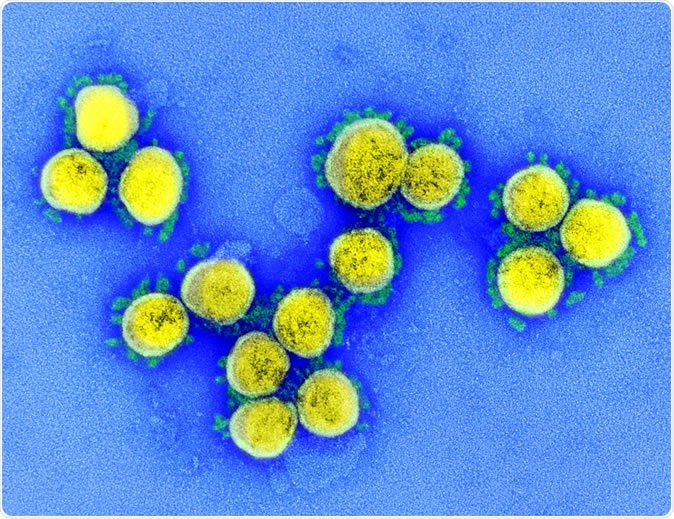Researchers from China and the United Kingdom have collaborated to conduct a clinical trial looking at the efficacy of a combination of two anti-HIV drugs lopinavir and ritonavir to combat severe cases of COVID-19. Their study titled, “A Trial of Lopinavir–Ritonavir in Adults Hospitalized with Severe COVID-19,” was published in the latest issue of the New England Journal of Medicine (NEJM).
What was the study about?
Novel coronavirus was first detected in Wuhan, China, in the Hubei Province in December 2019. The virus called SARS-CoV-2, since then, has wreaked havoc around the world, with a total of 242,191 confirmed cases as of now and 9,843 deaths across the globe. On 11th March 2020, the World Health Organization (WHO) declared the respiratory disease - COVID-19, caused by the coronavirus infection as a pandemic meaning multiple nations are at risk from this virus. In most individuals, there may be a self-limiting infection and illness of the respiratory tract. In some individuals, however, the problem may intensify to lead to pneumonia, multi-organ failure, and death. The elderly and those with immunocompromised states are more at risk, say the researchers.

SARS-CoV-2 - Transmission electron micrograph of SARS-CoV-2 virus particles, isolated from a patient. Image captured and color-enhanced at the NIAID Integrated Research Facility (IRF) in Fort Detrick, Maryland. Credit: NIAID
Despite the magnitude of the problem, there are no specific antiviral drugs to treat the condition. An earlier version of coronavirus caused severe acute respiratory syndrome (SARS) back in 2003, for which lopinavir, a drug used to treat human immunodeficiency virus (HIV), was used. Studies have suggested that lopinavir might be useful against novel coronavirus because it showed efficacy against both SARS and MERS-CoV (Middle East respiratory syndrome coronavirus). To increase the duration of action of the drug, lopinavir could be combined with another drug used in HIV called ritonavir, explained the researchers.
The study
This study was conducted to evaluate the effectiveness of orally administered lopinavir-ritonavir for SARS-CoV-2 infection among adults who have been admitted to the hospital with severe Covid-19. The trial is called “LOTUS China (Lopinavir Trial for Suppression of SARS-Cov-2 in China)”.
This was a randomized controlled trial that included patients with severe Covid-19 who had an oxygen saturation (Sao2) of 94 percent or less between 18th January and 3rd February 2020. They were admitted at Jin Yin-Tan Hospital, Wuhan, Hubei Province, China. The patients were divided into two groups randomly, and one group received 400 mg and 100 mg, respectively of Lopinavir and Ritonavir twice daily for 14 days, along with standard supportive care. All medications were provided freely by the national health authority. The other group received standard care alone. Standard care meant, “as necessary, supplemental oxygen, noninvasive and invasive ventilation, antibiotic agents, vasopressor support, renal-replacement therapy, and extracorporeal membrane oxygenation (ECMO),” wrote the researchers.
What was found?
For the study, the team of researchers recruited a total of 199 patients in whom the SARS-CoV-2 infection was confirmed. The population was 60.3 percent male, and the average age of the study population was 58 years. Of these, 99 were administered the drug combination while 100 received standard care. Results showed as follows;
- Time to clinical improvement was similar with both the treatment approaches
- The percentage of clinical improvement at day 14 for those on lopinavir and ritonavir was 45.5 percent compared to those on standard care (30 percent).
- Risk of death at 28 days was similar with both treatment approaches
- Viral load was tested at various time points, and the results from both groups were similar
- Clinical time to improvement of symptoms was one day shorter than standard care alone on an average, the results revealed
- Need for glucocorticoids or steroids were in 33 percent of patients on lopinavir and ritonavir and among 35.7 percent of those receiving standard care.
- Those on lopinavir and ritonavir had a shorter stay in the intensive care unit compared to those on standard care (6 days compared to 11 days).
- Serious adverse effects were more common in those receiving standard care, but gastrointestinal side effects were more common with lopinavir and ritonavir. These adverse effects among those on lopinavir and ritonavir were severe enough for 13 patients to discontinue treatment.
Implications and future directions
The researchers concluded that orally given lopinavir and ritonavir did not provide significant benefit in patients admitted with severe COVID-19. They wrote, “Future trials in patients with severe illness may help to confirm or exclude the possibility of a treatment benefit.”
This project was supported by the Major Projects of National Science and Technology on New Drug Creation and Development, among others.
Journal reference:
A Trial of Lopinavir–Ritonavir in Adults Hospitalized with Severe Covid-19, Bin Cao, M.D., Yeming Wang, M.D., Danning Wen, M.D., Wen Liu, M.S., Jingli Wang, M.D., Guohui Fan, M.S., Lianguo Ruan, M.D., Bin Song, M.D., Yanping Cai, M.D., Ming Wei, M.D., Xingwang Li, M.D., Jiaan Xia, M.D., et al. NEJM, March 18, 2020, DOI: 10.1056/NEJMoa2001282, https://www.nejm.org/doi/full/10.1056/NEJMoa2001282